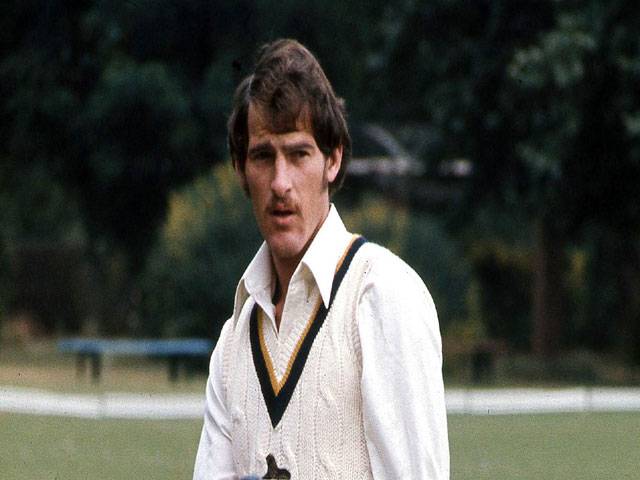JOHANNESBURG - Former all-rounder Clive Rice, the first post-apartheid captain of South Africa, died Tuesday aged 66, an official from the national cricket association said Rice, who had been suffering from a brain tumour and was admitted to hospital last weekend with severe stomach pain, played most of his cricket during South Africa's 20-year isolation from the international game.
He was selected for a 1971-72 tour of Australia, which was cancelled because of opposition to the South African government's policy of apartheid. When South Africa returned to the international fold in November 1991, Rice was appointed captain of a team which played three one-day internationals (ODIs) in India. But he was controversially omitted from the South Africa team which played in the 1992 World Cup in Australia and New Zealand with the selectors placing an emphasis on youth. Former South Africa stars paid tribute to Rice, who played in 482 first-class matches for Transvaal, Natal and Nottinghamshire, scoring 26,331 runs at an average of 40.95. He also took 930 wickets at an average of 22.49 before retiring in 1994. Pat Symcox tweeted: "Devastated ... a great friend and wonderful man. Clive Rice has passed away. The world is a poorer place". Peter Kirsten called him "one of the most formidable, gifted and competitive all-rounders that any age of the game has ever seen".
Herschelle Gibbs tweeted: "Sorry to hear about the passing of Clive Rice' 'Ricey' ... astute captain and a man that played the game hard." Former national cricket association president and Test skipper Ali Bacher also lavished praise on Rice. "Clive Rice was a truly great all-rounder," he said. "Had it not been for apartheid, he would have been a world great in the game of cricket. He was in the same class as Ian Botham and Richard Hadlee. Clive possessed huge determination and courage and was one of the best cricketers South Africa has produced."
International Cricket Council chief executive and former South Africa wicketkeeper David Richardson described Rice as a "giant". "Rice was a giant of the game, not just in South Africa, but across the cricketing world," he said in a statement. Though his international appearances for the Proteas were limited to just three ODIs, Clive was a hugely inspirational figure for those of us who had the privilege to represent our country since readmission to international cricket in 1991.
It was fitting that Clive was named captain of the national team on that historic first tour to India. Clive was hugely regarded across the world game as a player, but later as a coach and mentor, where he inspired the likes of Lance Klusener, Shaun Pollock and Jonty Rhodes. He will be greatly missed by those who knew him. On behalf of the ICC, I would like to extend our condolences to his wife and children at this difficult time."
In an era of notable all-rounders, including Ian Botham, Imran Khan, Kapil Dev and Hadlee, Rice's exploits were limited to South African domestic cricket, the English county championship and Kerry Packer's World Series Cricket. He excelled in them all. Rice captained the Transvaal 'mean machine' which dominated South Africa's domestic competitions during the 1980s, led Nottinghamshire to their first county championship in 52 years and was one of the stars in the Packer matches.
Rice, who turned 66 five days ago, died in his native South Africa just over four months after receiving robotic radiation treatment in the Indian city of Bangalore, which he described in an interview in March as "miraculous".
Tuesday, April 16, 2024
Former South Africa skipper Clive Rice dies

Decision to retaliate against Iran attacks rests with Israel, says Pentagon
1:05 PM | April 16, 2024
Global brands facing challenge from local contenders in Pakistan's FMCG market
10:24 AM | April 16, 2024
Israeli Air Force finalizes preparations for possible attack on Iran
8:21 AM | April 16, 2024
Court remands XEN in FIA custody
April 16, 2024
Political Reconciliation
April 16, 2024
Pricing Pressures
April 16, 2024
Western Hypocrisy
April 16, 2024
Policing Reforms
April 15, 2024
Storm Safety
April 15, 2024
Democratic harmony
April 16, 2024
Digital dilemma
April 16, 2024
Classroom crisis
April 16, 2024
Bridging gaps
April 16, 2024
Suicide awareness
April 15, 2024
ePaper - Nawaiwaqt
Advertisement
Nawaiwaqt Group | Copyright © 2024





